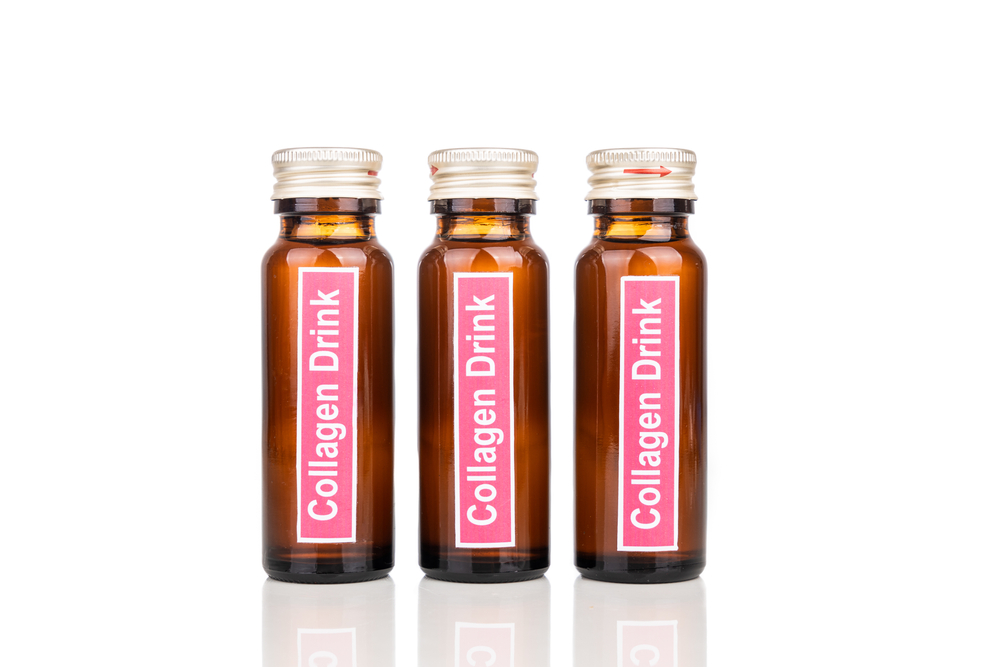You’ve been religiously mixing that expensive collagen powder into your morning smoothie, waiting for your skin to glow and your joints to feel twenty years younger. But here’s the plot twist nobody told you: drinking collagen by itself is like trying to build a house with bricks but no mortar. You’ve got the raw materials, but without the right helper nutrient, your body can’t actually use them.
The supplement industry has convinced millions of people that collagen drinks are the fountain of youth in powder form. But they conveniently left out one crucial detail that makes the difference between throwing money down the drain and actually seeing results. Your body needs vitamin C to turn that collagen protein into something useful.
Without adequate vitamin C, your expensive collagen supplement becomes just another overpriced protein powder that your body treats like any other amino acid source. It’s not building better skin or stronger joints, it’s just getting broken down for basic protein needs like any chicken breast or handful of nuts.
Your body can’t make collagen without vitamin C
Here’s what actually happens when you drink collagen: your digestive system immediately breaks down those collagen peptides into individual amino acids, just like it does with any other protein you eat. Your body doesn’t magically recognize these amino acids as “collagen building blocks” and shuttle them directly to your skin and joints.
Instead, your body needs to rebuild collagen from scratch using those amino acids as raw materials. This rebuilding process absolutely requires vitamin C as a cofactor. Vitamin C helps stabilize the collagen structure and allows the amino acid chains to properly cross-link into functional collagen molecules.
Without enough vitamin C, your body simply cannot synthesize new collagen, regardless of how many amino acids are floating around in your bloodstream. It’s like having all the ingredients for a cake but no baking powder. The recipe just doesn’t work without that essential component.
This is why sailors used to develop scurvy on long voyages despite eating plenty of protein. They had amino acids available, but without vitamin C from fresh fruits and vegetables, their bodies couldn’t maintain existing collagen or create new collagen to replace what naturally breaks down over time.
Most people don’t get enough vitamin C for collagen synthesis
The recommended daily allowance for vitamin C is only 90mg for men and 75mg for women, but this amount is designed to prevent scurvy, not optimize collagen production. For collagen synthesis to work efficiently, your body needs significantly more vitamin C than these basic recommendations.
Many factors increase your vitamin C needs beyond the standard recommendations. Stress, pollution, smoking, intense exercise, and even aging all increase your body’s demand for vitamin C. If you’re dealing with any of these factors, which most adults are, your basic dietary vitamin C intake probably isn’t enough to support optimal collagen production.
The timing of vitamin C intake also matters for collagen synthesis. Vitamin C is water-soluble, which means your body doesn’t store it well and levels can fluctuate throughout the day. Taking your collagen supplement without ensuring adequate vitamin C availability is like showing up to build something without bringing the necessary tools.
Food sources of vitamin C include citrus fruits, bell peppers, strawberries, kiwi, and leafy greens, but many people don’t consistently eat enough of these foods to maintain optimal levels for collagen production. Even if you eat vitamin C-rich foods, the vitamin C content can vary significantly based on freshness, storage, and preparation methods.
The synergistic relationship creates better results
When you combine collagen supplementation with adequate vitamin C, something magical happens. The vitamin C doesn’t just help your body use the amino acids from your collagen supplement, it actually enhances the entire collagen production process throughout your body.
Vitamin C acts as a powerful antioxidant that protects existing collagen from damage while new collagen is being formed. This dual action means you’re both building new collagen and preserving what you already have, creating a more dramatic improvement in skin elasticity, joint comfort, and overall collagen status.
The combination also appears to stimulate your body’s own collagen production beyond what either supplement would accomplish alone. It’s like the vitamin C and collagen amino acids work together to send stronger signals to your cells that it’s time to ramp up collagen synthesis.
This synergistic effect explains why some people see dramatic results from collagen supplements while others notice nothing at all. The people getting results are likely either eating vitamin C-rich diets or taking additional vitamin C supplements, while those seeing no benefits are missing this crucial cofactor.
Timing and dosage make the difference
For optimal collagen synthesis, aim for at least 1000mg of vitamin C daily when taking collagen supplements. This is significantly higher than standard recommendations, but it’s well within safe limits and necessary for maximizing collagen production.
Split your vitamin C intake throughout the day rather than taking it all at once. Your body can only absorb about 200mg of vitamin C at a time, so taking massive doses creates expensive urine rather than better collagen synthesis. Take 200-300mg with each meal and snack for optimal absorption.
Take your collagen supplement and vitamin C together whenever possible. This ensures that both nutrients are available simultaneously when your body is ready to synthesize new collagen. Some people find taking them together first thing in the morning works well, while others prefer before bed when growth and repair processes are most active.
Consider the form of vitamin C you’re using as well. Buffered vitamin C or vitamin C with bioflavonoids may be gentler on your stomach and potentially more effective for collagen synthesis than plain ascorbic acid, especially at higher doses.
Other nutrients that enhance the collagen-vitamin C partnership
While vitamin C is the star player in collagen synthesis, several other nutrients can enhance the effectiveness of your collagen and vitamin C combination. Zinc is particularly important because it’s required for collagen cross-linking and helps stabilize the collagen structure.
Copper is another trace mineral that’s essential for collagen formation. It’s needed for the enzymes that help form cross-links between collagen fibers. Most people get adequate copper from their diet, but if you’re taking high doses of zinc, you might need additional copper to maintain proper balance.
Vitamin E works synergistically with vitamin C to protect collagen from oxidative damage. While your body is building new collagen, vitamin E helps prevent existing collagen from breaking down due to free radical damage.
Silica, found in foods like cucumbers, bell peppers, and oats, also supports collagen synthesis and may enhance the effects of collagen supplementation when combined with adequate vitamin C.
Signs your collagen-vitamin C combination is working
Unlike some supplements that promise immediate results, collagen synthesis is a gradual process that takes weeks to months to become noticeable. The first signs you might notice are improvements in nail strength and growth rate, since nails are primarily made of protein structures similar to collagen.
Skin changes typically become apparent after 4-8 weeks of consistent supplementation with adequate vitamin C. You might notice improved skin hydration, reduced fine lines, or better skin elasticity. These changes happen gradually, so taking progress photos can help you notice improvements that develop slowly over time.
Joint comfort improvements may take longer to become apparent, sometimes 8-12 weeks or more. This is because joint cartilage has limited blood supply and regenerates very slowly compared to skin and other tissues.
Hair health improvements, including increased thickness and growth rate, may also become noticeable after several months of consistent supplementation with the proper vitamin C support.
Making your collagen investment worthwhile
If you’re going to invest in collagen supplements, make sure you’re also investing in the vitamin C needed to make them work. Without adequate vitamin C, you’re essentially paying premium prices for expensive protein powder that your body will use for basic metabolic needs rather than collagen synthesis.
Consider starting with a high-quality vitamin C supplement before adding collagen to your routine. This ensures your body has the cofactor it needs to make the most of your collagen investment. Many people find that improving their vitamin C status alone leads to noticeable improvements in skin and joint health.
The key is consistency with both nutrients over time. Collagen synthesis is an ongoing process that requires sustained nutritional support. Taking collagen and vitamin C sporadically won’t produce the dramatic results that consistent daily supplementation with both nutrients can achieve.
Your body wants to maintain healthy collagen levels, but it needs the right raw materials and cofactors to do so effectively. Give it both, and you might finally see why people rave about collagen supplements.


















